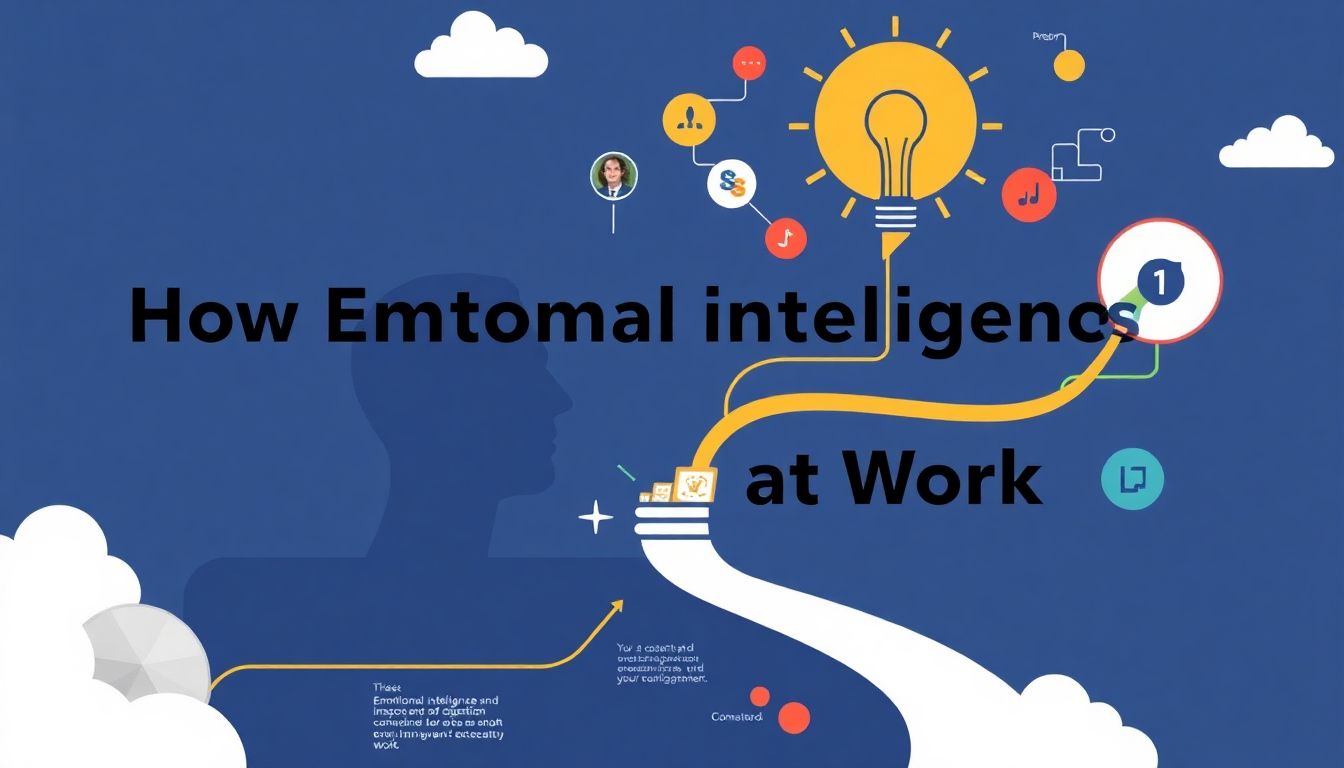Emotional intelligence is often talked about as one of the most valuable soft skills in the modern workplace—but what many people don’t realize is que ela começa com uma base sólida: a autoconsciência.
When you’re self-aware, you’re more in tune with your thoughts, emotions, triggers, and reactions. That awareness becomes the foundation for how you handle relationships, make decisions, and lead others. In fact, self-awareness is considered the core component of emotional intelligence.
Let’s explore how these two powerful traits work together—and how developing them can elevate your entire professional life.
What Is Emotional Intelligence?
Emotional intelligence (or EQ) is your ability to recognize, understand, and manage your own emotions—and to recognize, understand, and influence the emotions of others.
It’s made up of five key elements:
- Self-awareness – knowing your emotions and their impact
- Self-regulation – managing your reactions and impulses
- Motivation – using emotional energy to drive achievement
- Empathy – understanding how others feel
- Social skills – building and managing healthy relationships
These aren’t just soft, “nice-to-have” skills. EQ is directly linked to performance, leadership, and career advancement. And self-awareness is where it all begins.
Why Self-Awareness Is the Foundation
You can’t regulate what you don’t recognize. If you’re unaware of your stress, frustration, or self-doubt, those emotions may unconsciously influence your decisions and interactions. Self-awareness helps you:
- Name what you’re feeling in the moment
- Notice the effect of your emotions on others
- Observe your thoughts without getting swept up in them
It allows you to pause before reacting, speak with intention, and make clearer choices. Without self-awareness, emotional intelligence is incomplete.
The Benefits of Emotional Intelligence at Work
Professionals with strong EQ tend to:
- Communicate more effectively
- Build stronger working relationships
- Manage conflict with empathy and calm
- Make better leadership decisions
- Foster more inclusive and collaborative team cultures
In fast-paced, high-pressure work environments, emotional intelligence becomes a competitive advantage. It’s what helps you stay grounded when tensions rise—and what builds trust with clients, teams, and leaders.
How to Strengthen Self-Awareness (and EQ)
Improving emotional intelligence starts with building regular self-awareness practices. Here are a few powerful ways to do that:
1. Daily Emotional Check-Ins
Take a moment during your day to ask:
- What am I feeling right now?
- Why am I feeling this way?
- How might this emotion be influencing my behavior?
Over time, this builds emotional vocabulary and emotional regulation.
2. Journaling
Writing about your reactions, triggers, and interactions helps you notice patterns. You might uncover that certain meetings always leave you feeling tense, or that certain tasks bring out your best self.
3. Mindfulness Practices
Meditation, breathing exercises, or mindful walking help you stay present and calm. This gives you more space to respond rather than react impulsively.
4. Honest Feedback
Ask trusted colleagues or mentors for feedback on your communication, leadership, and presence. Often, others can spot patterns we can’t see.
5. Conflict Reflection
After a disagreement, reflect on how you handled it. What did you feel? How did you respond? What might you do differently next time?
These reflections aren’t about self-criticism—they’re about growth.
Emotional Intelligence in Leadership
If you’re in a leadership role (or want to be), EQ becomes even more important. Self-aware leaders are better at:
- Navigating team dynamics
- Recognizing emotional undercurrents
- Creating psychological safety
- Inspiring others with empathy and clarity
People follow leaders who are emotionally attuned—not just technically competent. When you lead yourself well, others naturally trust you to lead them too.
EQ Is Learnable
Some people believe emotional intelligence is something you’re born with, but research shows that it can be developed at any stage of life. Self-awareness, in particular, is a skill you can practice and refine, just like any other.
The key is consistency. With small daily efforts, your emotional intelligence grows—and with it, your capacity to navigate challenges, build meaningful connections, and make empowered career decisions.
A Stronger You Means a Stronger Career
When self-awareness and emotional intelligence work together, you become not only a better professional—but a better human. You understand yourself deeply and navigate the world with empathy, presence, and purpose.
This combination doesn’t just help you climb the career ladder—it helps you create a career that feels good at every step.
So if you want to grow professionally, start with knowing yourself. That’s where the real power lies.
